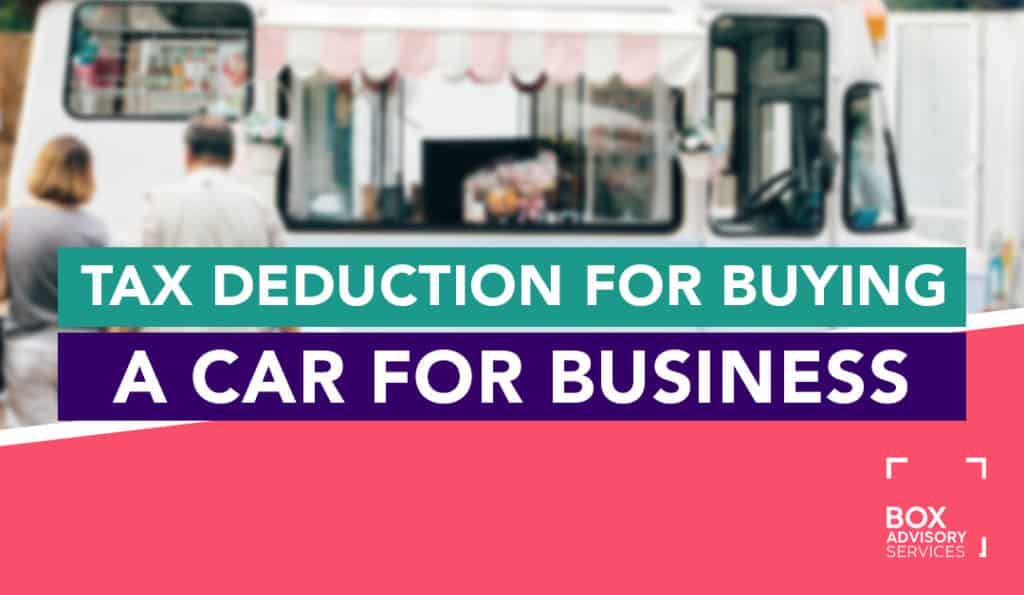
BY
|
Understanding the Company Tax Rate in Australia
Knowing how Australia’s full company tax rate works may not seem like a major priority, but it goes a long way to successful financial planning.
This guide covers these rates and explains how they might impact your business.
Overview of Company Tax Rates in Australia
In Australia, companies are subject to two main corporate income tax rates: a standard corporate tax rate and a lower base rate for certain small businesses. The standard corporate tax rate for companies not classified as base rate entities is 30%.
On the other hand, eligible base rate entities benefit from a reduced tax rate of 25%, providing much-needed tax relief to smaller businesses, including considerations for taxes on corporate income.
Familiarity with corporate tax rates helps companies meet tax obligations and optimise financial strategies. Determining your company’s eligibility for the standard or lower base rates significantly impacts tax liabilities and overall economic health.
Standard Corporate Tax Rate
For most companies in Australia, the standard corporate tax rate is 30%. Since the 2017 income year, this rate applies to non-base rate entities subject to Australian income tax on their worldwide income. The consistent tax rate helps businesses plan their financial strategies with certainty.
The 30% rate applies to these companies’ taxable income, meaning they need to calculate their assessable income and deduct allowable expenses accurately. This ensures company tax rates apply on net profits, aligning with global and domestic standards to prevent underpayment or overpayment.
Base Rate Entities
Certain companies, classified as base rate entities, are eligible for a lower company tax rate. As of the 2021–22 income year, these entities’ reduced corporate tax rate is 25%. This lower rate significantly benefits small businesses, allowing them to reinvest more of their profits back into their operations.
Additionally, under a double taxation agreement (DTA), Australia’s right to tax a company’s business profits is typically limited to profits linked to a permanent establishment in Australia.
A company’s aggregated turnover threshold must not exceed $50 million to qualify as a base rate entity. This includes the turnover of any connected entities, ensuring that only truly small businesses benefit from the lower tax rate. Understanding whether your company falls under this category is crucial for accurate tax planning and compliance.
Calculating Taxable Income
Calculating taxable income is fundamental to determining a company’s tax liability. In Australia, taxable income is determined from the assessable income earned by a business after deducting allowable expenses. This process involves identifying all sources of revenue and then subtracting the costs associated with generating that revenue.
Assessable income includes all gross earnings from business activities, while allowable deductions encompass operational costs necessary for running the business. By accurately calculating taxable income, companies can ensure they comply with Australian income tax laws and optimise their tax payments.
Assessable Income
Assessable income in Australia includes:
- The total revenue generated from business activities and other sources, excluding GST
- All gross earnings, such as sales revenue and government payments
- Income from barter transactions, including based on the market value of the goods or services exchanged.
Allowable Deductions
Allowable deductions are expenses that can be subtracted from assessable income to determine taxable income. Common allowable deductions for companies include day-to-day operating expenses necessary for business operations. This includes salaries, rent, utilities, and depreciation of assets.
Certain capital expenses may also qualify for deductions over time through capital allowances. Knowing which deductible expenses helps businesses lower their taxable income and tax liability.
Special Considerations for Capital Gains
Capital Gains Tax (CGT) is levied on the profits made from selling assets a company holds. The capital gain is calculated as the difference between the purchase price and the asset’s selling price, taking into account any costs associated with selling the asset. These gains must be counted as assessable income when selling business assets.
Small business concessions can further reduce CGT liabilities through provisions like rollover relief and active asset tests. These concessions support small businesses and encourage reinvestment.
Exemptions and Concessions
Small business entities may qualify for specific CGT concessions that reduce their tax liabilities. Eligibility for these concessions requires meeting certain conditions, such as active asset usage.
Small business owners can access four types of CGT concessions to reduce or defer their capital gains tax liabilities, including the small business 15-year exemption, which allows complete disregard of a capital gain if criteria are met.
These concessions are designed to support small businesses, providing significant tax relief and encouraging long-term investment and growth.
Goods and Services Tax (GST)
Goods and Services Tax (GST) is a broad-based tax of 10% applied to most goods and services sold in Australia. Businesses must comply with GST regulations, which include both registration and ongoing reporting requirements. Managing GST properly ensures compliance and avoids penalties.
GST compliance involves registering for GST, charging GST on taxable sales, and lodging regular GST returns. Businesses can submit their tax returns through registered tax agents or using standard business reporting (SBR) enabled software.
GST Registration
Businesses must register for GST if their GST turnover exceeds $75,000. Additionally, registration is mandatory for taxi or limousine services regardless of their turnover. A company must first obtain an Australian Business Number (ABN) to register for GST.
Registration can be done online, by phone, or through a tax agent. Once registered, businesses must comply with GST reporting and payment obligations, ensuring timely submission of GST returns.
GST-Free Items
GST-free items are specific goods and services exempt from GST under Australian law. These items include essential services and goods, such as food, medical, educational, and certain items used for charitable activities.
Businesses dealing in GST-free items do not charge GST on their sales, simplifying their compliance and billing processes. Understanding which items are GST-free helps businesses accurately manage their GST obligations.
Fringe Benefits Tax (FBT)
Fringe Benefits Tax (FBT) applies to employee benefits apart from their salary. It is a tax on these additional perks. These benefits can include non-cash perks such as work car usage for personal reasons and gym memberships. FBT ensures that these benefits are taxed similarly to other forms of compensation.
Employers must self-assess their FBT liability for the financial year from April 1 to March 31 and lodge an annual FBT return detailing their fringe benefits. The FBT rate applied is 47% of the grossed-up value of the benefits.
Types of Fringe Benefits
Common fringe benefits include using a work vehicle for personal use, gym membership payments, and entertainment like concert tickets. These benefits are non-cash perks provided to employees in addition to their salary, offering value beyond regular compensation.
Understanding the types of fringe benefits helps employers manage their FBT obligations and provide attractive compensation packages to their employees.
Reporting and Payment
Employers must lodge an annual FBT return detailing their fringe benefits. This involves self-assessing the FBT liability for the financial year and calculating the FBT based on the provided benefits. The FBT rate is 47% of the grossed-up value of the benefits.
Accurate FBT reporting and timely payment ensure compliance and prevent penalties. Employers can use payroll software to simplify the reporting process.
Payroll Tax
Payroll tax is based on the value of company wages paid to employees. This tax is levied by state and territory governments, and the obligations may vary, including exemptions, grants, or concessions specific to each business. Businesses must pay taxes according to their particular obligations.
State variations in payroll tax rates and thresholds mean businesses must understand their operating regions’ specific requirements. Regular engagement with educational programs offered by state revenue offices can help businesses remain compliant.
State Variations
Each Australian state has distinct payroll tax rates and varying thresholds for tax liability. Employers in certain states may need to register for payroll tax if their monthly payroll exceeds set thresholds.
Businesses operating in multiple regions must understand these state-specific variations. Compliance with state-specific payroll tax regulations ensures that companies meet their tax obligations and avoid penalties.
Compliance Requirements
Payroll tax returns and payments can be made monthly, quarterly, or annually. Using payroll software can simplify the reporting of employee taxes and super contributions, as can using a tax agent like Box AS.
Tax Obligations for Foreign Companies
Foreign companies operating in Australia are subjected to tax obligations on income sourced from Australia. These companies are taxed solely on their Australian-sourced income. Foreign companies must understand these obligations to ensure compliance and avoid double taxation.
Double Taxation Agreements (DTAs) play a significant role in this context, providing ways to reduce or stop double taxation on cross-border income.
Non-Resident Companies
Non-resident companies conducting business in Australia are taxed at a rate of 30%. This rate applies to the income from their Australian operations, ensuring they contribute to the Australian economy.
If a non-resident company becomes incorporated in Australia, it may be taxed on its worldwide income. This broader tax base requires careful financial planning to manage tax obligations across different jurisdictions.
Key Takeaways
- Australia has a standard corporate tax rate of 30% for most companies, while eligible base-rate entities benefit from a reduced tax rate of 25%.
- Understanding whether your company qualifies as a base rate entity is crucial for accurate tax planning and compliance.
- Calculating taxable income involves deducting allowable expenses from assessable income, which includes all gross earnings from business activities.
- Allowable deductions for companies include day-to-day operating expenses such as salaries, rent, utilities, and depreciation of assets.
- Capital Gains Tax (CGT) is levied on the profits made from selling assets, and small business concessions can reduce CGT liabilities through provisions like rollover relief and active asset tests.
Frequently Asked Questions
What is the standard corporate tax rate in Australia?
The standard corporate tax rate in Australia is 30% for non-base rate entities.
How do base rate entities benefit from a lower tax rate?
Base rate entities benefit from a lower tax rate of 25% as it enhances their cash flow and profitability, allowing for reinvestment and growth. This preferential treatment is designed to support smaller businesses within the economy.
What are some common allowable deductions for companies in Australia?
Common allowable deductions for companies in Australia include operating expenses like salaries, rent, utilities, and asset depreciation. These deductions can significantly reduce taxable income.
What is the purpose of Double Taxation Agreements (DTAs)?
The purpose of Double Taxation Agreements (DTAs) is to prevent individuals and businesses from being taxed on the same income in multiple countries, thereby promoting international investment and economic cooperation. These agreements provide clarity and security regarding tax obligations across jurisdictions.
When will Australia implement its domestic minimum tax?
Australia will implement its domestic minimum tax of 15% starting in January 2024.



